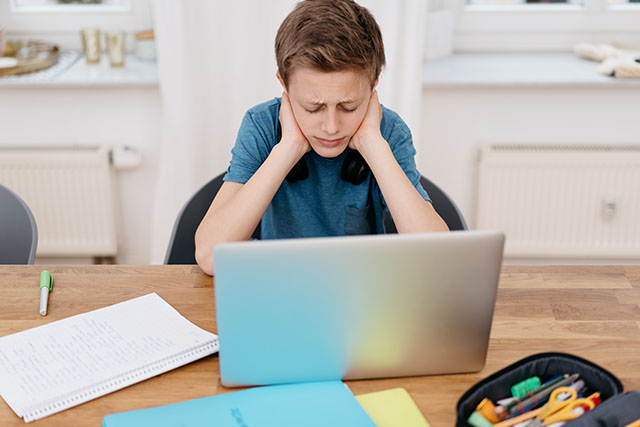When parents think about signs of depression, they might first look to symptoms that friends or family have had. We typically think of someone who is depressed as being sad or down all the time.
There are some less common signs that might serve as clues that a child is depressed and these include: irritability, academic decline, changes in weight, and self-harm behaviors.
Less Common Signs of Depression in Kids
Irritability
Anger and irritability are symptoms of depression that may be harder to identify in adults but often present in children. Kids’ reactions may not match the size of the problem and they often appear to be constantly frustrated, as if their anger is simmering under the surface. Some children may alternate between anger and sadness. If this irritability occurs over the period of several weeks, it may be a sign of depression.
Academic Decline
Fluctuations in academic performance especially during times of transition are normal for kids. However, a depressed child may have significant decline in grades. School refusal, difficulty paying attention, and avoiding homework for a child who was previously highly motivated can be a sign of depression.
Changes in Weight
Because children are naturally growing and progressing through different physical developmental stages, weight gain or weight loss can sometimes be a harder sign to notice.
Self-Harm
Self-harm behaviors in children can be a symptom that is overlooked by parents because many kids will try to hide it. Cutting might occur on upper legs, hips, or stomach while other self-harm such as skin picking or burning might also occur. Kids and teens often report that self-harm behaviors are a form of avoidance, or a way to numb or hide the emotions they are feeling on the inside by inflicting pain on the outside.
Talk to a Mental Health Professional
If you are noticing signs of irritability, changes in school performance, weight fluctuations, or self-harm, speak to a mental health professional. Depression in children and teens when identified early and comprehensively, is very treatable. Treatment may include both Cognitive Behavioral Therapy (CBT) and medication, or CBT alone.

